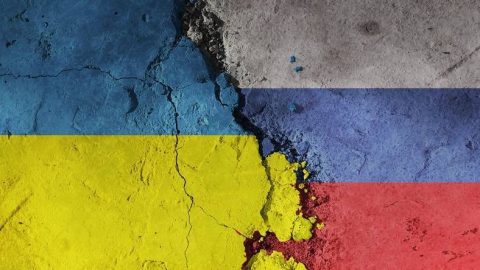The Russian invasion of Ukraine has been consistently analyzed by the media through the prism of weapon deliveries and military might. But what could also be described as a legitimate victim of this war is the West’s political-legal-institutional infrastructure – and that is exactly what this webinar has sought to analyze.
It has been said that the pen is mightier than the sword – or in this instance, the gun – but despite lawyers and politicians believing in the word of international treaties and fora, have they been able to do their job successfully during this war, and can it be sustained for the future?
In this webinar, a panel of experts looked at whether international law applicable to armed conflicts is able to constrain barbaric acts of violence sustained on the Ukrainian population and if international humanitarian law – and the various organizations which exercise this – is able to succeed in recognizing non-combatant victims of this war, and to proceed in helping the injured and those who wish to flee.
To understand this further, the webinar welcomed several guest experts: Aleksandr Popov, who covered the question of general respect for international treaties and the possibility to limit use of force; Beatrice Onika Jarka, who spoke about the possibility of measuring the impunity for international crimes related to Ukraine; Justinas Žilinskas, who focused on criminal responsibility based on the Ukraine Criminal Code — using the first case during the conflict; Milan Lipovsky, who examined the idea of a new ad hoc tribunal for the crime of aggression; Agnieszka Bieńczyk-Missala, who spoke about the initial refugee welcome and subsequent developments in Poland; Evhen Tsybulenko, who focused on the facts that constitute genocide in the ongoing war; and last but not least, Tamás Lattmann has given a short overview about the role of European institutions in giving answer to the problems raised by the earlier speakers.
The webinar treated the reality of Ukraine having not just a nation with one of the most powerful militaries invading their land, but also a nation that sits on the United Nations Security Council as nothing short of catastrophic. As a consequence, the West’s – and the rest of the world’s – ability to enforce its legal mechanisms to constrain Russia and limit the warfare are ultimately paralysed. A further corollary of this is that these treaties and mechanisms will only continue to atrophy as long as they are seen to be actively abrogated by a nation that sits on the Security Council – arguably the top instrument in the international system’s arsenal.
WATCH THE RECORDING HERE

